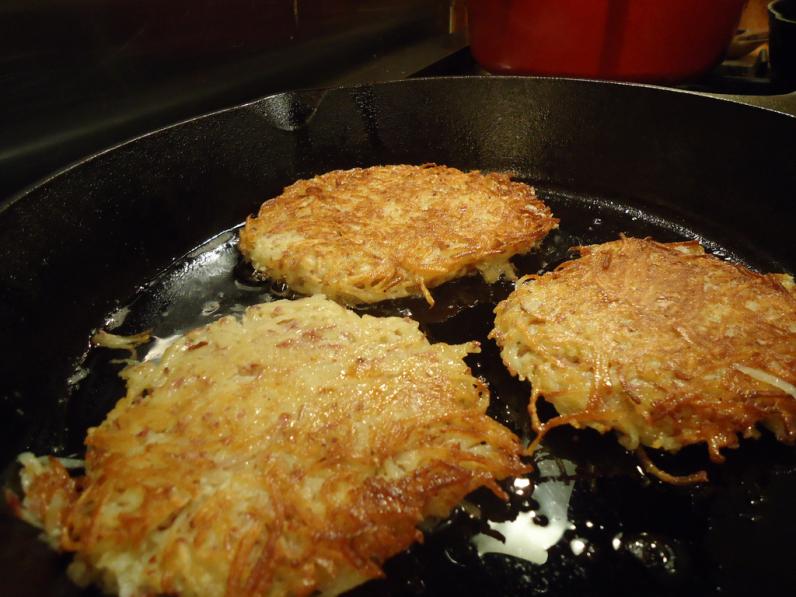
Hanukkah, the Festival of Lights, is upon us, and if you have any Jewish friends, are Jewish yourself, or have seen the Rugrats Hanukkah special, you know what that means: latkes. Not just any potato pancake, the crispy potato fritters are an integral part of the holiday.
Although there is no biblical command to eat fried foods, the tradition comes from the central miracle of Hanukkah. During a Jewish uprising that lasted from 167 to 160 BC against the Greeks, the rebel Maccabees took back the temple in Jerusalem. The menorah, the candelabra that religion required to always be burning, had barely enough oil for one night. In the miracle of Hanukkah, the oil lasted for eight nights.
Potatoes weren’t around most places Jews lived until much later, but they were eventually given the fried-in-oil treatment and, along with jelly donuts, also known as sufganiyot, have become a staple of American Hanukkah celebrations.
Keep Up With This Story And More By Subscribing Now
As Serious Eats writes, there are three main elements to every latke: potato, onion, and a binder to hold it all together. The basic idea is to grate the potato, mix with the onion and binder, and fry in oil, flipping halfway through until done.
While Jewish liturgy does not contain a commandment for making latkes, most seasoned latkemancers will tell you the fundamental principle of latke-craft is thus: thou shalt not fry wet potatoes. In the frying process, wet latkes become mushy latkes, and those are not the potato pancakes anybody wants. While tastes may vary, the ideal for most people is a crispy latke, which can only be attained with dry potato shreds. Bon Appetit has a pretty good guide: they suggest gathering your shredded potatoes in a kitchen towel to squeeze out as much water as possible.
The particulars are a little more complicated. Finding a solid recipe to go off is always a good place to start. Deb Perelman of Smitten Kitchen has posted several different latke recipes over the years. She offers a few alternatives: including zucchini latkes, Indian-spiced vegetable fritters with yogurt, and latke waffles, which are made in a waffle iron.
As for toppings, tastes fall into canonical groups: applesauce and sour cream. For the particularly bougie, you might extend that second one to its assimilationist end with a caviar topper.
Other food traditions also shape the way Jews celebrate Hanukkah. Along with fried foods, for centuries Jews have eaten dairy on Hanukkah (in case you want to cover all your bases, here’s a recipe for Italian-style cheese latkes). As PBS writes, latkes’ origins probably stem from the Book of Judith. This book tells the story of a Jewish woman (Judith) who saved her village from an invading army by charming the army’s general, feeding him wine and cheese until he fell asleep, then beheading him with his own sword.
HANUKKAH 2017: HOW TO MAKE PERFECT LATKES FOR EVERY TASTE PREFERENCE. it's true
@janvanhoess
Downvoting a post can decrease pending rewards and make it less visible. Common reasons:
Submit